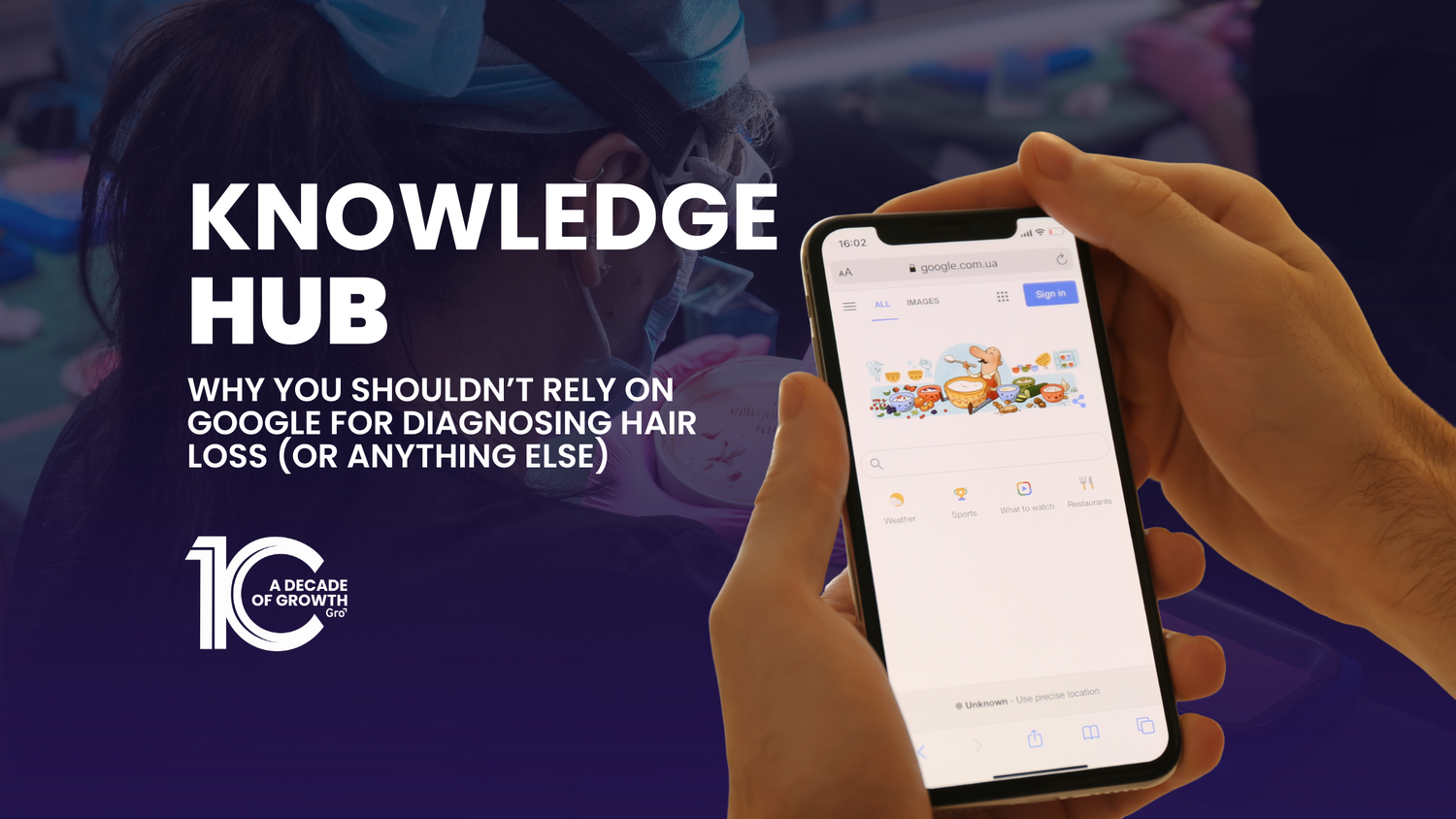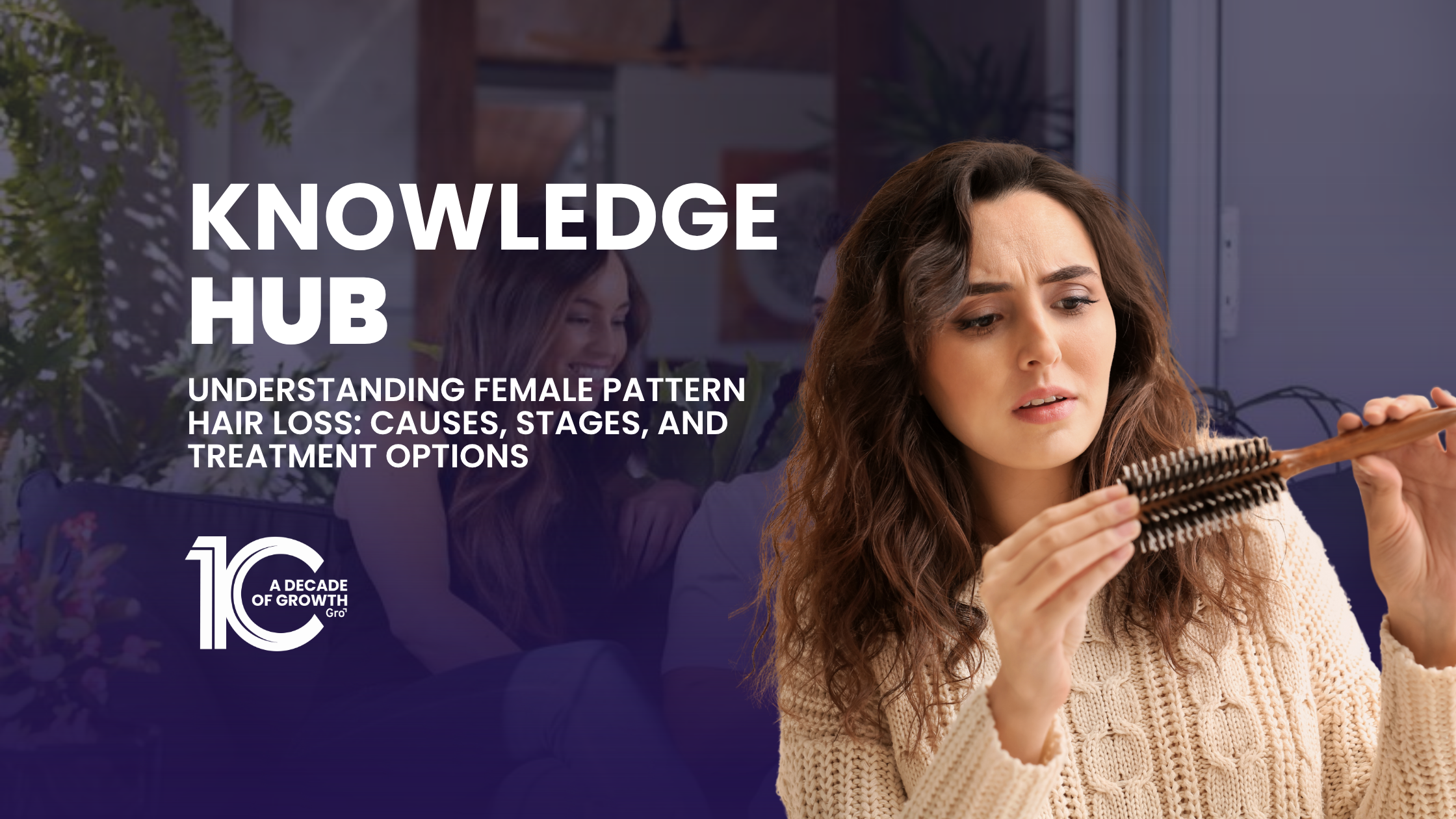It’s tempting, searching symptoms online feels faster and easier than booking an appointment. But if you’ve ever googled “hair thinning” or “sudden shedding,” you’ve likely ended up overwhelmed by worst-case scenarios or conflicting advice.
This blog explains why self-diagnosing online is unreliable and what to do instead if you’re concerned about hair loss or other symptoms.
Googling Symptoms: Why It Feels Helpful but Isn’t
Search engines are powerful research tools. But when it comes to health, context and accuracy matter. Google doesn’t know your health history, underlying conditions, or contributing factors, yet it will still try to provide answers.
Medical professionals refer to this phenomenon as “cyberchondria”—when searching symptoms online leads to increased anxiety and often inaccurate conclusions.
- Search engines are not diagnostic tools
- They prioritise engagement, not accuracy
- Information may be outdated or unverified
How Search Engines Work (and Why That’s a Problem)
Google uses complex algorithms to rank content based on factors like traffic, keywords, and site authority. But these algorithms don’t verify medical accuracy. Content that’s more alarming or sensational is more likely to be clicked—and therefore, more likely to appear at the top of search results.
That’s why anecdotal experiences, clickbait titles, and worst-case scenarios can appear more prominently than evidence-based guidance.
The Risk of Self-Diagnosing Hair Loss Online
If you've been searching topics like:
- “Why am I losing hair?”
- “Best treatments for bald spots”
- “Side effects of hair loss medication”
—it’s worth remembering that online results may not apply to your unique situation. Misinterpreting information can lead to unnecessary worry or, conversely, delay appropriate care.
What to Do Instead
If you’re concerned about changes to your hair or scalp, the most reliable next step is a professional consultation. At Gro Clinics, our Hair Growth Advisors provide confidential guidance based on your concerns, goals, and individual presentation.
From prescription haircare to hair transplant procedures and other treatment options, your plan is tailored to your specific needs—not based on generic advice from the internet.
Where to Get Support
Gro Clinics operates across Australia and New Zealand. You can book a consultation online or visit a clinic near you:
Still have questions? Ask us here.
In Summary: Why Google Isn’t Your Doctor
- Online results often lack clinical accuracy
- Search engines reward popularity, not credibility
- Self-diagnosing can delay real help or increase anxiety
Use the internet for background education, not clinical advice. For real answers, speak to a trained professional.












